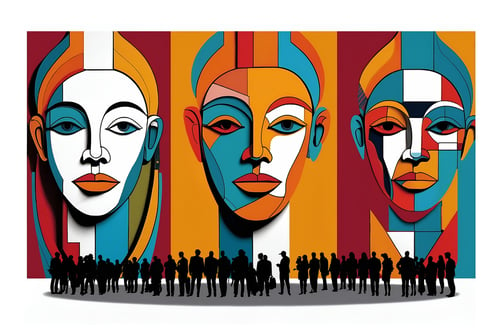“We promise to always prioritize authenticity, practical value, and meaningful content over anything else. Our focus is on your growth, not sales or clickbait. Transparency is at the heart of what we do.”


Escaping Matrix From Evolving
Human Curiosity!
🛠️ Real tools for real people looking for real growth.💬It’s not about perfection—it’s about progress. Let’s grow together.🌻 Your roadmap to clarity, confidence, & living with intention.🧘♂️ Helping you create balance, happiness, & a life that feels right.🚶♀️ Small steps, big changes. Your better human journey starts here.
1. What Do People Want to Achieve in Life Globally?
Across the world, human aspirations tend to cluster around similar needs and desires, though shaped by culture, societal structures, and individual circumstances. These can be divided into universal desires and culturally specific goals.
Universal Aspirations:
According to frameworks like Maslow’s hierarchy of needs, people generally pursue:
Survival and Security: Food, water, shelter, safety, and health. In many parts of the world, achieving basic security is still the main goal.
Connection and Belonging: Cultivating healthy relationships, fostering strong community ties, and nurturing family bonds are essential for a fulfilling life. These connections inspire us, support our well-being, and create a sense of belonging that enriches our experiences.
Personal Growth and Self-Expression: The desire to grow intellectually, emotionally, spiritually, and creatively.
Freedom and Opportunity: Imagine a life where you can make your own choices, embrace your true self, and break free from the chains of oppression and poverty. It's about seizing the chance to create your own path and live life on your own terms.
Meaning and Purpose: A life that feels significant, whether through religion, service, legacy, or personal fulfillment.
Cultural and Regional Differences:
In developing countries, like India aspirations often revolve around survival and economic stability. Education, healthcare, and escaping poverty are key priorities.
In developed countries, like the USA where basic needs are often met, people shift focus on higher-level goals like self-actualization, personal success, or spiritual growth.
Cultural narratives (e.g., collectivism in Asia vs. individualism in the West) shape how people define success. In some cultures, communal well-being may be prioritized over personal ambition, while independence and self-fulfillment are emphasized.


Image source: pexels


Image source: pexels
2. Do People Seek to Become the Best Version of Themselves?
Yes, people globally seek to become the "best version" of themselves, though what this means depends heavily on cultural, economic, and individual contexts.
Universal Themes of Self-Improvement:
Better Opportunities: For many, becoming their "best self" means improving their financial situation, career, or education, often as a means to lift themselves and their families out of poverty.
Mental and Emotional Well-Being: In both developing and developed nations, there’s a growing awareness of mental health, self-love, and emotional resilience.
Spiritual Growth: For billions, "best self" is tied to faith, spirituality, or living according to moral or religious values.
Barriers to Self-Improvement:
Systemic Oppression ("The Matrix"): Across the world, people feel stuck in systems that prioritize profit or productivity over individual well-being. Examples include:
Exploitative labor systems (e.g., sweatshops, unlivable wages).
Educational inequality that limits opportunities.
Social media or consumerist systems that breed comparison, envy, or apathy.
Lack of Resources: Many are unable to focus on self-improvement due to poverty, lack of education, or political instability.
Cultural Pressures: In some societies, individuals may feel restricted by traditional roles or expectations (e.g., gender roles, caste systems).
3. Is the Pursuit of Growth Materialistic, Ideological, or Both?
The balance between materialism and ideology varies greatly depending on cultural and economic contexts, but most people world-wide blend both aspects as they navigate life.
Materialistic Pursuits:
For people in low-income or developing countries, material wealth is often a necessity rather than a luxury. It represents survival, security, and dignity. Owning a home, sending children to school, or escaping debt can be life-changing.
In wealthier or urbanized societies, Materialism often mirrors our aspirations and societal standings, individuals seek out luxury items, expansive homes, and extravagant lifestyles as symbols of achievement. It’s a relentless pursuit, painting success in the gloss of designer labels and the size of one’s property, as we find ourselves caught in a cycle of comparison and desire.
Ideological Pursuits:
People are increasingly drawn to non-material goals like happiness, mindfulness, and community.
Movements advocating for sustainability, minimalism, and ethical living reflect a growing global awareness of how unchecked materialism can harm the planet and personal well-being.
The Tension Between Materialism and Ideology:
Many people around the world feel trapped in a "matrix" of consumerism, where they have been conditioned to believe that acquiring more—money, possessions, and status—will lead to happiness. Breaking free from this mindset often requires a significant change in perspective. True fulfillment usually comes from connection, purpose, and simplicity, rather than endless consumption...


Image source: pexels
Image source: pexels


4. How Do Wealthy or Smart People Globally Replicate Money?
Wealthy or financially savvy people worldwide share similar principles in how they grow and sustain their wealth, regardless of cultural or geographic differences:
Universal Wealth Strategies:
Investing in Assets: Whether it's land in rural India, stocks in Wall Street, or gold in the Middle East, the wealthy focus on assets that appreciate over time.
Creating Businesses: Entrepreneurship is a universal method of wealth generation. From small family businesses in Africa to tech startups in Silicon Valley, successful individuals leverage innovation and resourcefulness.
Leveraging Globalization: The wealthy often benefit from global systems (outsourcing, international markets) that allow them to multiply profits.
Educating Themselves: Across the world, successful people prioritize financial literacy, and learning about money management, investments, and global markets
Mindset & Disciplined: They do understand the reality of life, knowing the cycle of small wins daily, each day when they go to sleep they are encouraged the next morning to do a task, but common Folks, generally enter emotionally today we are getting tired, wake up late, eventually lost tomorrow's morning, with that night itself.
Image source: pexels
5. What Is the Purpose of Money for the Average Person?


Image source: pexels
The purpose of money differs by culture, but at its core, it represents freedom, security, and opportunity for people everywhere. However, how people view and use money is shaped by their context:
For Basic Needs (Survival):
In many parts of the world, money is not just a convenience; it is a matter of survival. It directly influences the ability to secure food, obtain shelter, and access essential healthcare and education. Without adequate financial resources, the struggle to meet these basic needs becomes an uphill battle.
For Status and Validation:
Globally, money is often tied to social standing. In some places, it's about owning land or gold, while in others, it's about wearing luxury brands or driving the latest car.
For Aspirations and Freedom:
Money is often seen as a pathway to escape—whether it’s leaving an oppressive system, traveling, or pursuing a dream.
For Connection and Joy:
For many, money is spent on things that bring happiness—celebrations, supporting loved ones, or traveling to visit family.
For Escapism:
Globally People use money for distractions, like entertainment or indulgences, especially in challenging times. Hey, Folks how long do we get trapped into the system, we should input all kinds of stuff happening around us and think about what it does to us, and what we have to put forth our inner-self to escape from this mass distractive world.
In today’s interconnected world, the internet plays a massive role in shaping people’s aspirations and relationship with money. It has both positive and negative effects:
Positive Impacts:
Access to Knowledge: People can learn skills, explore financial opportunities, and connect with global movements for self-improvement.
Entrepreneurship: Platforms like e-commerce, freelancing, and content creation allow people to make money online.
Community Building: Social media provides inspiration, connection, and motivation.
Negative Impacts:
Consumerism: Advertising and influencers wield a powerful influence, pushing us to spend on things that are often unnecessary, making it crucial to be mindful of our purchases.
Comparison: Seeing curated versions of others' lives fosters dissatisfaction or low self-esteem. Listen, There is going to be somebody in this world who has better organization, better income standards, better mindset. When we compare with them, we deep dive into it, sabotaging our self-esteem.
Overwhelm: The sheer amount of information can paralyze people or lead to unhealthy habits like doom scrolling.


6. The Role of Technology and the Internet Globally
The Key Takeaway:
The "best version" of oneself is a deeply personal concept, shaped by the intersection of survival, culture, and personal growth.
For some, it’s about breaking out of poverty; for others, it’s about finding meaning in a world driven by consumption.
Globally, humans are united by their shared desires for love, purpose, and the hope of living a life that feels truly their own.


betterhumanguide Ltd © 2024
betterhumanguide empowers tomorrow's generation for a brighter future and hope for everyone.
